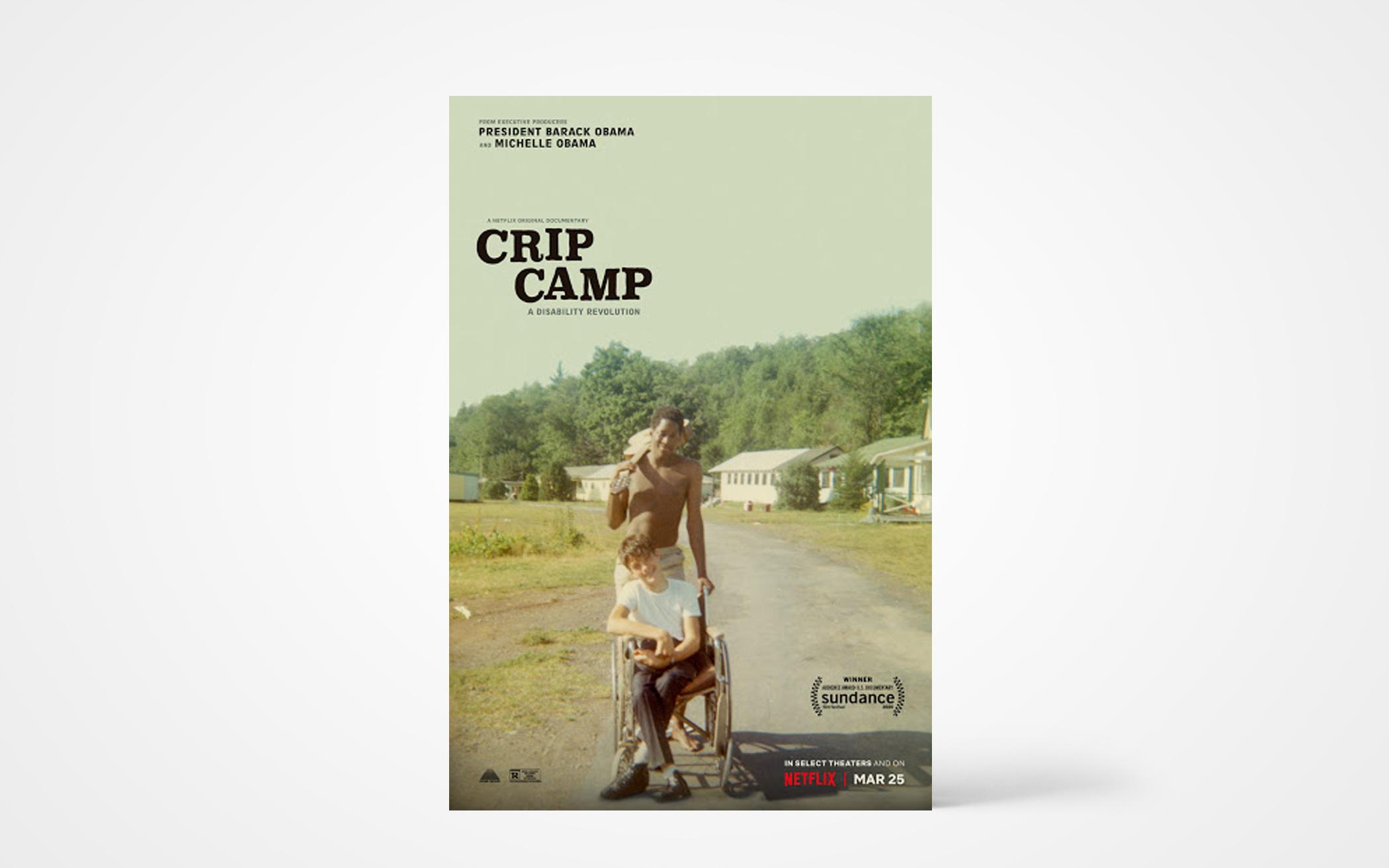The history of the Civil Rights Act of 1964 is well known—but what about the 1990 Americans with Disabilities Act? How did our society move towards banning discrimination toward people with disabilities and acknowledging accessibility as a right?
In this fantastic documentary, directors Nicole Newnham and James Lebrecht argue that the ADA’s origins can be found in a little-known summer camp.
Located in the Catskill Mountains just north of New York City, Camp Jened was dedicated to serving teens with disabilities. When he was 15, Lebrecht participated in the camp in 1971. The experience changed his life. Born with spina bifida, he notes: “I wanted to be part of the world, but I didn’t see anyone like me in it.” When he came to the camp, he met people with all forms of disabilities, all accepting one another as they were—it was a place where you could try anything and be yourself. For his own part, Lebrecht was for the first time a “cool kid” and met his first girlfriend.
Going between interviews and original footage of the camp, the documentary highlights frank discussions between the campers. A particularly moving dialog occurs when the teens discuss the way their parents are overprotective and treat them differently from their siblings. As Lebrecht summarizes, “What we saw at that camp is that our lives could be better.”
Empowered by their experience at Camp Jened, participants and counselors would go on to become leaders in the movement for civil rights for people with disabilities. Former camp counselor Judy Heumann stands in the group of “Jenedians.” After contracting polio as a toddler, Heumann has used a wheelchair and faced discrimination head on.
A truly charismatic leader, Heumann went on from Camp Jened to become in 1972 head of Disabled in Action. At that time, section 504 of the Rehabilitation Act, which mandated accessibility for all federally funded buildings, was in question. Through Disabled in Action, Heumann organized a “sit-in” of people in wheelchairs blocking a Manhattan intersection, and so the entire city.
After describing the camp and Heumann’s early life and career, the film turns to her fight to get section 504 enforced, after the Rehabilitation Act was signed by President Nixon in 1973. In 1977, under President Carter’s administration, James Califano, secretary for the Department of Health, Education, and Welfare, was still dragging his feet to enact the law. Heumann organized a month-long sit-in of HEW’s building in San Francisco, ultimately forcing Califano to sign the proposed laws.
The final section of the movie treats much more quickly the actual history of the Americans with Disabilities Act, and perhaps that is the topic for another film. Indeed, the main point of the film is to highlight the shift in public opinion that occurred during the HEW sit-in. Thanks to national coverage of Heumann’s trip to Washington, D.C., Califano changed his mind within a day and signed the laws.
The documentary starts with some original footage of a Camp Jened camper being asked this question: “Would you like to see handicapped people depicted as people?” That indeed is a great strength of this film. As at the camp, the film gives equal voice to people of all disabilities, even if their speech might be difficult for some to follow.
In the same way, the film contains several open discussions about sex and also language that might be offensive to some viewers. But again, the intention is to show people with disabilities as people, with passions and desires like anyone else. As such, this film is an excellent choice for adult discussion groups for the history it recounts and the model of social action Heumann, Lebrecht and others provide. While the directors do not claim any particular faith, Crip Camp clearly shows that love for our neighbor means providing equal opportunities for that neighbor.
Seamlessly edited, the documentary also uses pop songs effectively to underscore the different time periods and themes. As with this year’s Oscar-winning documentary American Factory, Barack and Michelle Obama were executive producers of Crip Camp through their production company Higher Ground, displaying again their ability to promote powerful stories.
In the way that images of the civil rights movement are ingrained into our memories, Crip Camp has the ability to help us remember and appreciate the courage and vision of activists who blocked the traffic in Manhattan so people would stop and listen “to what’s going round.” (Netflix)
About the Author
Otto Selles teaches French at Calvin College, Grand Rapids, Mich., and attends Neland Avenue Christian Reformed Church in Grand Rapids.

